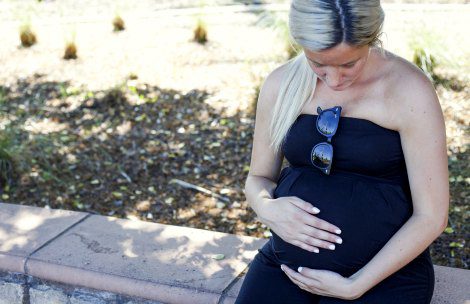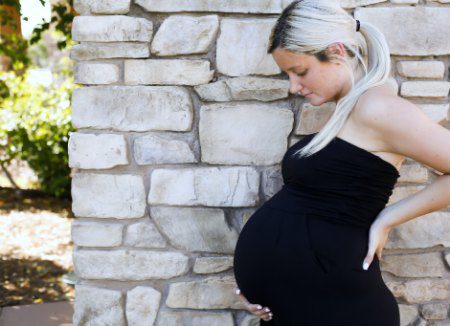
Lifetime Adoption understands that your main concern is the health of your future child.
The expectant mothers that we serve are typically already facing personal challenges when they discover that they’re pregnant. And sometimes, their challenges include substance use or addiction. In addition, we occasionally help pregnant women who are struggling with substance use issues.
This tends to make some hopeful adoptive parents anxious. We understand that you want to make sure the baby you adopt is healthy and safe. At Lifetime Adoption, we work hard to find the right adoption situation for each adoptive family, birth mother, and child. That includes making sure you’re comfortable with substance exposure in your baby’s background.
It’s up to you to decide what substance exposure you are comfortable with in your child. In order to make an informed decision about what you’re comfortable with, it’s important to research the effects that substances can have on a developing baby. The more open you are in your adoption preferences, the shorter your adoption wait time will likely be.
When an expectant mother chooses you to adopt her baby, Lifetime will provide you with her social and medical history information, medical records, and any self-disclosed information about drug or alcohol use. We will have asked the difficult questions for you because we want to be sure that the adoption situation is a good fit for you and your family.
How Lifetime Adoption Screens Birth Mothers
From her very first phone call to Lifetime Adoption, each woman starts developing a relationship with her own Adoption Coordinator. This professional answers her questions and guides her through the adoption process. She also gets to know her on a personal level and finds out what her goals are for her baby.
This one-on-one connection is the base of our birth mother screening process. Throughout a birth mother’s adoption journey, her Adoption Coordinator is gauging her commitment to her adoption plan, encouraging her to lead a healthy lifestyle, and helping her find prenatal care. This adoption professional also evaluates the care the birth mother is providing for herself and her baby and asks questions to form a complete social medical history. Each expectant mother provides information about her family’s medical history, substance use and more.
Are Birth Mothers Drug Tested?

Even though Lifetime Adoption’s birth mother screening process is thorough, it can raise questions for some hopeful adoptive parents, like:
“If it’s just up to the birth mother to share about her drug or alcohol use, what if she isn’t honest?”
“Are expectant mothers drug-screened?”
We strive to build relationships with expectant mothers which are based on communication, respect, and trust. Requiring a drug screening would undermine this relationship, and instead form a negative relationship from the start. Testing each birth mother for substances communicates to her that we don’t trust her. The strong relationships Lifetime Adoption builds with our birth mothers assist in creating a strong bond between the adoptive family and birth mother. This strong bond has been proven to result in more successful adoptions.
Lifetime Adoption will ask a birth mother from the initial phone call, “During your pregnancy, have you used any drugs or alcohol?” If she answers yes to any of those, we ask how much and when. We’re gathering as much information as we can. Then, when the birth mother fills the paperwork out (usually a few days later), they’re asked those same questions again. So we already have that double-check built into our system. If there’s substance use mentioned on the paperwork that the woman didn’t tell us about during our initial phone call, then we have something to address.
If a woman’s medical professional suspects drug use, they can test the patient as part of their standard prenatal care. Lifetime does not routinely request drug tests unless an adoptive family wants it.
Our team of adoption experts is very skilled at evaluating if a birth mother is using, based on her behavior. If Lifetime Adoption has reason to believe that a birth mother is using drugs, we may recommend that you request a drug test. We would then conduct this for you, on your behalf.
Lifetime’s coordinators are rarely surprised that a birth mother is using. Typically, the surprises come with last-minute adoption situations where a woman calls from the hospital and wants to make an immediate adoption plan.
Lifetime Provides Support, Not Judgment
Most expectant mothers are more comfortable having honest conversations with their Adoption Coordinator, who is there to help them make the best possible plan for their baby. Any information that a birth mother provides to Lifetime Adoption will be kept confidential, and revealing any drug or alcohol use to us won’t result in punishment or judgment.
As our adoption professionals work with a birth mother, we want her to understand why we need to have accurate information about everything that’s been happening during her pregnancy. Most birth moms would agree because they don’t want to end up matched with the wrong family and then have to pick a family all over again. They have a motivating factor on why they want to be open with us.
A significant reason why Lifetime rarely has surprises about substance use is that we don’t provide a judgmental environment, but rather a compassionate and accepting one. We want potential birth mothers to feel comfortable telling us the truth of what’s happening, and we’re glad she’s reaching out for help. If she ends up choosing adoption, her baby will have the opportunity to be placed into a healthy, stable environment with two loving adoptive parents.
The majority of birth moms that Lifetime helps aren’t using. It takes effort to call us and answer all of our questions, then to receive the paperwork and fill out the forms, and send them to Lifetime. Pregnant women who are heavy drug users don’t necessarily have the capacity to make a plan and follow it like the women we help. Typically, babies born to drug-abusing mothers are available through the foster care system.
How to Form Your Preferences on Substance Use
Lifetime encourages you to seek the advice of a medical professional and to read all you can about the subject. Also, it’s helpful to hear other adoptive parent’s stories so that you can learn from their experiences.
Lifetime Adoption has held free webinars with couples who adopted babies exposed to substances in the womb. As you’re doing your research, be sure you’re looking at similar situations. So, for example, don’t consider the story of a child adopted from an orphanage in Bulgaria who had fetal alcohol syndrome if you’re trying to learn about alcohol exposure. That’s because that child had a lot more trauma and neglect in those years in an orphanage than the fetal alcohol syndrome caused. Be sure you’re comparing apples to apples in regards to your research.
 Understanding a Birth Mother’s Situation
Understanding a Birth Mother’s Situation
It helps hopeful adoptive couples to understand that most birth mothers are not sitting at a great place in their lives. Some are in college, and some of them are working, but by and large, life is not great. They’re struggling, they’re probably on state or government assistance, and they probably have other children. She may be struggling to parent those children. She may have lost those children to CPS or placed them into the care of her mom or grandma.
Usually, there’s not a consistent male role model involved in her child’s life, and there’s not a good guy in her life. If everything were going great in her life, she wouldn’t be looking at adoption. So it helps to have that understanding as your baseline.
Most birth mothers are not the sweet 16-year-old who made a mistake and got pregnant. It’s usually women in their twenties who are struggling. They may have made bad choices, and are trying to do something better for this baby. These women are choosing adoption even though everyone in their life is probably telling them not to.
Today’s women aren’t being forced and shamed into adoption. They’re choosing adoption even though it is the hardest choice to make. Keep in mind that adoption isn’t going to be possible if everyone’s in a great situation, and don’t have to struggle with nicotine addiction. Or, don’t have to struggle with the fact that she partied for three months before she found out about her pregnancy.
Being Open Provides You More Opportunity
The more open you are in your preferences, the more opportunity you’ll have to be chosen because more women are going to see you. The more limited you are, the fewer opportunities you’re going to have to be selected by a birth mother.
If for example, you say yes to alcohol exposure that doesn’t mean any type and amount of exposure. You can say, “yes, as long as the baby is healthy, and there’s no fetal alcohol syndrome.” We encourage you to work with your Adoption Coordinator to create a description that you know you’re going to be on-board with. In doing so, that birth mom is then enabled to choose you. You’ll be able to move forward with that adoption and accept being selected by her with peace in your heart. You’ve already thought out the majority of these tough decisions in the very beginning of planning your adoption with Lifetime.
The more you learn, the better equipped you’ll be to make a decision. And, the more open you may be to considering a child whose mother used substances.
There IS a Baby for You
We believe that for every adoptive couple, the right baby is out there. Since Lifetime does not require drug testing, expectant mothers feel comfortable working with us no matter their situation. Regardless of what’s in their social or medical history, Lifetime Adoption will provide the same quality services to help them find the perfect family for their baby. This leads to more adoptions and shorter wait times for hopeful adoptive parents.
Lifetime Adoption’s screening procedures have been developed and perfected over our more than 30 years of experience. This system has been proven to be the most effective way of screening birth mothers.
To learn more about how we screen birth mothers, or to begin your own adoption process, please contact Lifetime Adoption today at 1-800-923-6784.
Take the first step today and apply online for free!
Founder of Lifetime Adoption, adoptive mom, adoption expert, and Certified Open Adoption Practitioner (C.O.A.P).
Since 1986, adoption expert Mardie Caldwell has been dedicated to bringing couples and birth parents together in order to fulfill their dreams.
“Many years ago, I was also searching for a child to adopt. We didn’t know where or how to get started. Through research, determination, and a prayer, our dream of a family became reality. I started with a plan, a notebook, assistance from a caring adoption consultant and a lot of hard work; this was my family I was building. We had a few heartaches along the way, but the pain of not having children was worse!
Within weeks we had three different birth mothers choose us. We were overwhelmed and delighted. Many unsettling events would take place before our adoption would be finalized, many months later. Little did I know that God was training and aligning me for the adoption work I now do today. It is my goal to share with our families the methods and plans which succeed and do not succeed. I believe adoption should be affordable and can be a wonderful “pregnancy” for the adoptive couple.
I have also been on both sides of infertility with the loss of seven pregnancies and then conceiving by new technology, giving birth to a healthy daughter. I have experienced first-hand the emotional pain of infertility and believe my experience allows me to serve your needs better.
It is my hope that for you, the prospective parents, your desire for a child will be fulfilled soon.”

 Understanding a Birth Mother’s Situation
Understanding a Birth Mother’s Situation


0 Comments